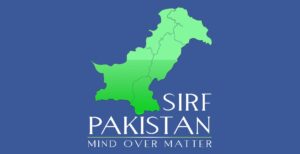Pakistani Prime Minister Shehbaz Sharif expressed hope on Tuesday that an agreement for a $7 billion International Monetary Fund (IMF) bailout program reached in July would get approval from the lender’s executive board, hoping this would be the country’s “last” loan deal.
The staff-level agreement for the 37-month program capped negotiations that started in May after Islamabad completed a short-term, $3 billion program that helped stabilize the economy, avert a sovereign debt default, and set challenging revenue targets in its budget to get IMF approval.
After signing the new bailout deal, PM Sharif, who leads a weak ruling coalition at the center, has repeatedly said his government is committed to tough but unavoidable reforms.
“All the prerequisites and conditions for our program with the IMF are fully under supervision and actions are being implemented to fulfill them. God willing, we are hopeful that all the conditionalities and requirements of the IMF will be fulfilled on time,” Sharif told his cabinet on Tuesday.
“Our case will go to the [IMF executive] board for approval, and a new journey will begin, but we should keep one thing in mind that this should be the last IMF program of Pakistan’s history and the country should stand and run on its own feet.”
Pakistan has been struggling with boom-and-bust cycles for decades, leading to 22 IMF bailouts since 1958. Currently the IMF is the fifth-largest debtor, owing $6.28 billion as of July 11, according to the lender’s data.
The latest economic crisis has been the most prolonged and has seen the highest ever levels of inflation, pushing the country to the brink of a sovereign default last summer before an IMF bailout.
The conditions of the program have become tougher such as higher taxes on farm incomes and electricity prices. The latest bailout is aimed at cementing stability and inclusive growth in the crisis-plagued South Asian country, the IMF said.
The latest IMF deal is subject to approval by its executive board and the confirmation of necessary financing assurances from Pakistan’s development and bilateral partners.


